
U2 are an Irish rock band from Dublin, formed in 1976. The group consists of Bono, the Edge, Adam Clayton, and Larry Mullen Jr.. Initially rooted in post-punk, U2's musical style has evolved throughout their career, yet has maintained an anthemic quality built on Bono's expressive vocals and the Edge's chiming, effects-based guitar sounds. Bono's lyrics, often embellished with spiritual imagery, focus on personal and sociopolitical themes. Popular for their live performances, the group have staged several elaborate tours over their career.

Laurence Joseph Mullen Jr. is an Irish musician, best known as the drummer and co-founder of the rock band U2.

Achtung Baby is the seventh studio album by Irish rock band U2. It was produced by Daniel Lanois and Brian Eno, and was released on 18 November 1991 on Island Records. After criticism of their 1988 release Rattle and Hum, U2 shifted their direction to incorporate influences from alternative rock, industrial music, and electronic dance music into their sound. Thematically, Achtung Baby is darker, more introspective, and at times more flippant than their previous work. The album and the subsequent multimedia-intensive Zoo TV Tour were central to the group's 1990s reinvention, by which they abandoned their earnest public image for a more lighthearted and self-deprecating one.
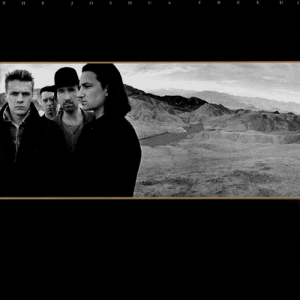
The Joshua Tree is the fifth studio album by Irish rock band U2. It was produced by Daniel Lanois and Brian Eno, and was released on 9 March 1987 on Island Records. In contrast to the ambient experimentation of their 1984 release, The Unforgettable Fire, the band aimed for a harder-hitting sound within the limitation of conventional song structures on The Joshua Tree. The album is influenced by American and Irish roots music, and through sociopolitically conscious lyrics embellished with spiritual imagery, it contrasts the group's antipathy for the "real America" with their fascination with the "mythical America".

Pop is the ninth studio album by Irish rock band U2. It was produced by Flood, Howie B, and Steve Osborne, and was released on 3 March 1997 on Island Records. The album was a continuation of the band's 1990s musical reinvention, as they incorporated alternative rock, techno, dance, and electronica influences into their sound. Pop employed a variety of production techniques that were relatively new to U2, including sampling, loops, programmed drum machines, and sequencing.

All That You Can't Leave Behind is the tenth studio album by Irish rock band U2. It was produced by Brian Eno and Daniel Lanois, and was released on 30 October 2000 through Island Records and Interscope Records. Following the band's experimentation with alternative rock and dance music in the 1990s and the mixed reception to their 1997 album, Pop, U2 returned to a sound more akin to their earlier records for All That You Can't Leave Behind. The group reunited with Eno and Lanois, who had produced three prior U2 albums together. The record was originally named "U2000", which had been a working title for their PopMart Tour.
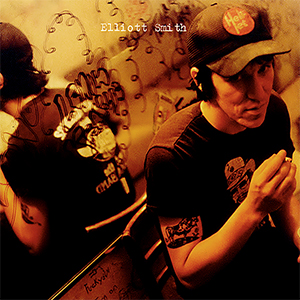
Either/Or is the third studio album by American singer-songwriter Elliott Smith. Either/Or was recorded in several locations, mostly in Portland, Oregon – while Smith was still a member of Heatmiser – and was produced by Smith, Tom Rothrock and Rob Schnapf. Either/Or was released on February 25, 1997, on the Kill Rock Stars record label, following Heatmiser's dissolution. Book-ended by its two singles, "Speed Trials" and "Ballad of Big Nothing", Either/Or did not chart in the US, but was acclaimed by critics.
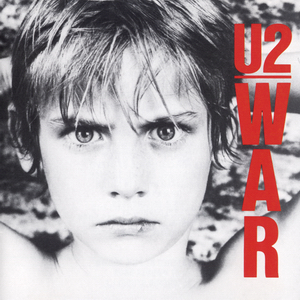
War is the third studio album by Irish rock band U2. It was produced by Steve Lillywhite, and was released on 28 February 1983 on Island Records. The album is regarded as U2's first overtly political album, in part because of songs like "Sunday Bloody Sunday" and "New Year's Day", as well as the title, which stems from the band's perception of the world at the time; lead vocalist Bono stated that "war seemed to be the motif for 1982."

"Stuck in a Moment You Can't Get Out Of" is a song by Irish rock band U2. It is the second track on their tenth studio album, All That You Can't Leave Behind (2000), and was released as the album's second single on 29 January 2001. The band's lead vocalist Bono has said the song was inspired by a fictional conversation with his friend Michael Hutchence about suicide. The song peaked at number 52 on the US Billboard Hot 100 and topped the charts in Canada, their native Ireland and Italy, while reaching the top 10 in Australia, Denmark, Finland, the Netherlands, Norway, Scotland, Spain and the United Kingdom. In 2002, the song won the Grammy Award for Best Pop Performance by a Duo or Group with Vocal at the 44th Annual Grammy Awards ceremony.

"Where the Streets Have No Name" is a song by Irish rock band U2. It is the opening track from their 1987 album The Joshua Tree and was released as the album's third single in August 1987. The song's hook is a repeating guitar arpeggio using a delay effect, played during the song's introduction and again at the end. Lead vocalist Bono wrote the lyrics in response to the notion that it is possible to identify a person's religion and income based on the street on which they lived, particularly in Belfast. During the band's difficulties recording the song, producer Brian Eno considered erasing the song's tapes to have them start from scratch.
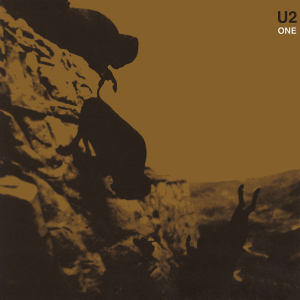
"One" is a song by Irish rock band U2. It is the third track from their seventh album, Achtung Baby (1991), and it was released as the record's third single in February 1992. During the album's recording sessions at Hansa Studios in Berlin, conflict arose between the band members over the direction of U2's sound and the quality of their material. Tensions almost prompted the band to break up until they achieved a breakthrough with the improvisation of "One"; the song was written after the band members were inspired by a chord progression that guitarist the Edge was playing in the studio. The lyrics, written by lead singer Bono, were inspired by the band members' fractured relationships and the German reunification. Although the lyrics ostensibly describe "disunity", they have been interpreted in other ways.

"I Still Haven't Found What I'm Looking For" is a song by Irish rock band U2. It is the second track from their 1987 album The Joshua Tree and was released as the album's second single in May 1987. The song was a hit, becoming the band's second consecutive number-one single on the US Billboard Hot 100 while peaking at number six on the UK Singles Chart.

"Vertigo" is a song by Irish rock band U2. It is the opening track on their eleventh studio album, How to Dismantle an Atomic Bomb (2004). It was released to radio as the album's lead single on 8 November 2004, and upon release, it received extensive airplay. The song was an international success, bolstered by its usage in a television advertisement featuring the band for Apple's iPod digital music player. The song lent its name to the band's 2005–2006 Vertigo Tour.

"Staring at the Sun" is a song by Irish rock band U2. It is the fifth track on their 1997 album, Pop, and was released as its second single on 14 April 1997. It peaked at number three on the UK Singles Chart, number one in Canada and Iceland and number 26 on the US Billboard Hot 100. In the US, it topped the Billboard Modern Rock Tracks and Adult Alternative Songs charts. It also reached the top 10 in Finland, Ireland, Italy, New Zealand and Norway.

"If God Will Send His Angels" is a song by Irish rock band U2. It is the fourth track on their 1997 album, Pop, and was released as its fifth single on 8 December 1997. It was also featured on the City of Angels soundtrack.

"Hold Me, Thrill Me, Kiss Me, Kill Me" is a song by Irish rock band U2. It was released as a single from the soundtrack album for the film Batman Forever on 5 June 1995. A number-one single in their home country of Ireland, as well as in seven other countries, it reached number two on the UK Singles Chart, number sixteen on the US Billboard Hot 100, and number one on the Billboard Album Rock Tracks and Modern Rock Tracks charts. The song received Grammy Award nominations for Best Rock Performance by a Duo or Group with Vocal and Best Rock Song. The song is included on the compilation album The Best of 1990–2000 and the live album From the Ground Up: Edge's Picks from U2360°.

Something Happens are an Irish pop-rock band whose heyday was the late 1980s and early 1990s. The band's lineup consists of Tom Dunne (Vocals), Ray Harman (Guitar), Alan Byrne (Bass) and Eamonn Ryan (Drums).

"That's Just the Way It Is" is a song by English drummer Phil Collins, released as a single in July 1990 from his fourth solo studio album, ...But Seriously (1989). The track features David Crosby on background vocals. The song was only released as a single in Europe and Australasia, while "Do You Remember?" was instead released in the United States. The song reached number 26 in the UK Singles Chart.
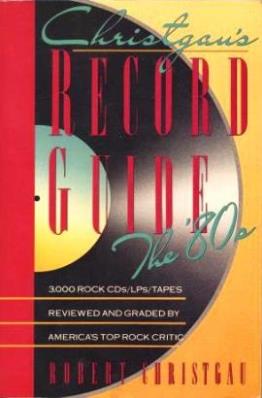
Christgau's Record Guide: The '80s is a music reference book by American music journalist and essayist Robert Christgau. A follow-up to Christgau's Record Guide: Rock Albums of the Seventies (1981), it was published in October 1990 by Pantheon Books.



















